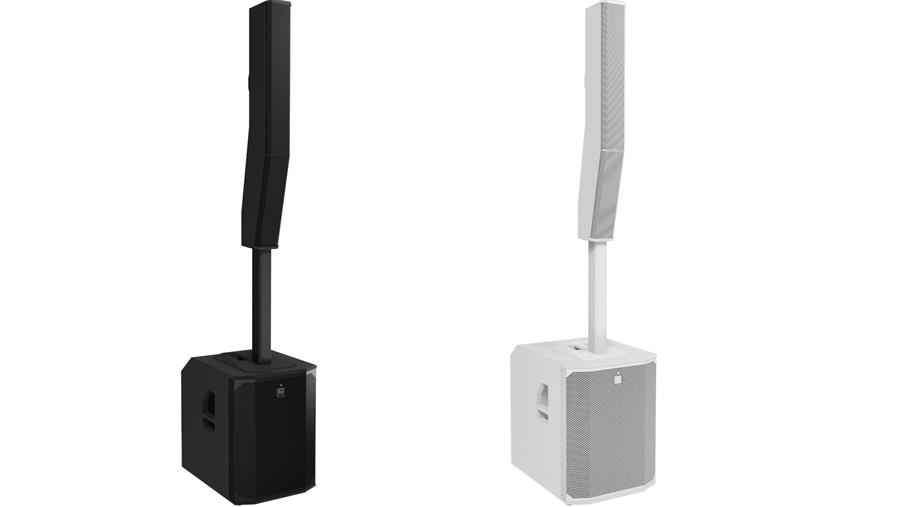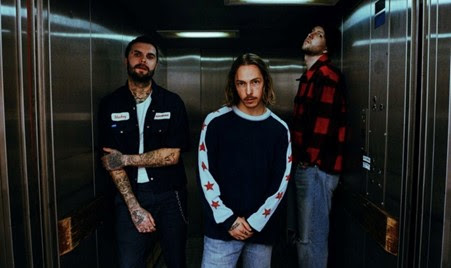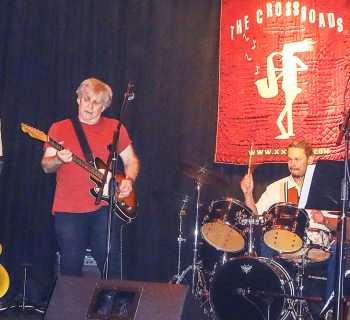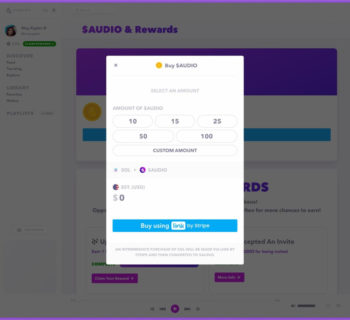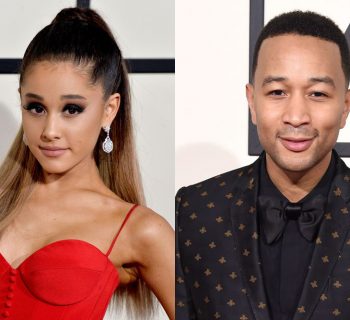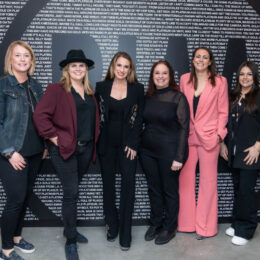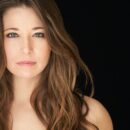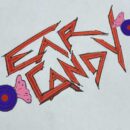When much of your family consists of musicians, it might seem like creating music is your unavoidable destiny. That was the case for Marcus King, whose father, grandfather and two of his uncles all played music. The notion of music as fate undoubtedly intensified when, as a child, the Greenville, SC, native discovered the Epiphone El Dorado guitar owned by his dad, Marvin King, and became entranced with the sleek instrument.
Indeed, King’s 2020 album, produced by Dan Auerbach of The Black Keys and subsequently nominated for a Grammy, is appropriately named El Dorado. They recorded it at Auerbach’s Easy Eye Studio located in Nashville, where King spends much of his time. While this was King’s first solo recording, he’d already carved a name for himself with The Marcus King Band. Listeners fast became enamored with the young player’s axe-blazing skills. Some even christened him a guitar prodigy, a title with which he feels distinctly uncomfortable. Nonetheless, his lightning licks and gut wrenching vocals turned him into the new face of the blues. Still, his genre-bending tendencies make his music difficult to pigeonhole. Southern rock, Americana, funk, and soul are all genres listeners have identified within his sound.
On King’s latest, Mood Swings [Republic Records), he continues to expand his repertoire by diving into the R&B spectrum. Especially in comparison to his previous solo outing, Young Blood, this album is particularly soul-focused, not to mention personal. For a long time, King has been public about his struggles. Drug addiction, depression, and abandonment issues, for example, are all openly acknowledged parts of his story that have provided grist for his artistic mill. But this time around, King looked even deeper within and subsequently created the most intense and revealing music of his career.
The album’s producer, Rick Rubin, inspired this shift, and the title remains a clever play on its emotional qualities. King was stunned when the bearded legend, founder of Def Jam Recordings and American Recordings as well as producer of breakthrough albums with artists such as Beastie Boys, Red Hot Chili Peppers, Slayer and Adele, called him out of the blue. Yet it wasn’t a difficult decision for him to work with Rubin, and the result will surely be looked back on as a critical stepping-stone in King’s long and illustrious career.
MC spoke with the 28-year-old artist to reflect on his experience in the music industry thus far and delve into matters such as songwriting, dealing with the public’s all-too-often unkind opinions, and staying sane on tour.
How are you?
Man, I’m so good. It’s a beautiful day. I just got off a little flight.
Are you on tour?
I’m on a business trip right now. And I’ll be back on the road… I think I go to New York City on the 14th. I’ll be doing four nights at the Blue Note [Jazz Club] with some friends of mine.
The logical place for us to start is this new album. It’s an artistic shift from the stuff you’ve done in the past. Was that a conscious decision?
Yeah, man. I remember bringing demos in and sitting with Rick [Rubin.] Rick and I met because of the song “Goodbye Carolina.” He heard me do that on the Opry. And he cold called me. From that, we kind of blossomed a beautiful friendship and working relationship.
And when I was bringing in demos of songs I had written, the first where he had a really big reaction was “Bipolar Love.” I wouldn’t say it’s my favorite on the record. I don’t think it would be his either, but it was the first song that kind of showcased the vulnerability and lyrical component of the album. It kind of gave us the right path ahead as far as speaking blatant truth as to what my experiences were.
What were you thinking when you got that call from Rick Rubin?
I was pretty taken aback. I’m such a fan of Rick’s since I was a kid, from his work with Def Jam Recordings to Johnny Cash’s last works. Rick’s had his hands in just about every genre, and in just about every genre [that matters to me] I can speak to an album he’s had a role in.
And just him as a dude. After we worked together, I read his book, The Creative Act: A Way of Being. I really recommend that to anybody looking to break into this business. And more so to people that have been in this business for five or six years and maybe picked up a few bad habits. The primary bad habit that I can speak to is creating music for anybody other than yourself. Rick’s main thing was, I feel like he… I don’t want to say he “debrainwashed” me, but we spent six months where I would write stuff and he would be like, “Okay.” It was clear that I was writing for the audience. And I was writing it because I thought that it would be commercially successful or something like that.
I feel really proud to have put out Mood Swings. And to put out exactly what I wanted to say. It’s really resonated with the fans in that regard, as well. Rick’s kind of got a “build it and they will come” approach to art.
I imagine people are more critical of this album because you’re not sticking with one creative lane. You have all these genre labels attached to you and now you’re putting on a different hat. You wear a cowboy hat and people call you country. You’re blues, now you’re R&B. There are all these tags, but you’re just a musician.
I just love American music. James Brown wore a cowboy hat. Taj Mahal, when he did The Rolling Stones’ Rock and Roll Circus, he wore a cowboy hat. Taj Mahal dressed more like a cowboy than Buck Owens at times. I just love classic Americana. I was raised by my grandfather who played country and western his whole life. We were raised to wear our Sunday western best when we get on stage. So that was always a big part of my persona and a big part of my upbringing.
Sometimes, it’s easy to forget that it’s a blessing to have a strong relationship with all these different types of music. I think the people in charge, whether it be radio or what have you, want to put a label on you so they can easier elevator pitch your music to somebody else.
Was making this album more fulfilling than others? Did you receive some sort of internal salvation from it?
Man, well, yeah. It really was. That’s a great way to put it. It certainly was a cathartic experience, not only with writing it but recording it and then getting to deliver it to the public. It’s something I’m really proud of. It opened me up in a whole new way. I look at this as the record that kind of put me back on track to making what I want to make. And just having faith in my audience the way that they’ve had faith in me. Having faith they’ll follow me as long as I’m speaking something true and that I really believe in.
How does working with Rick Rubin differ from working with Dan Auerbach?
Well, they’re both really unique cats in their own way. Dan’s really hands-on. Rick doesn’t play any instruments and doesn’t like to get involved on the technical side of things, whereas Dan oftentimes will play on the record. Dan and I wrote everything together on the album [El Dorado.] A lot of the songs I would bring in would be my idea. But he would also introduce me to writers like Greg Cartwright. One of the songs on the record, “Hero” from Mood Swings, is one we wrote with Greg Cartwright. I meet writers like that through Dan who wind up becoming really good friends and writers I look up to. Dan’s a lot more involved in that regard. Rick takes a more philosophical approach.
I noticed Dan Auerbach has a credit on this new album. Do you like to do co-writes?
I always kind of wrote on my own. And then when I moved to Nashville… I’ll tell you the benefit in co-writing. You kind of get to learn all these different ways that people put pen to paper. It’s like traveling to different countries. It’s like experiencing different people’s cultures. And the way other people perceive the world. It’s a beautiful thing to be able to pick up on all these subtle nuances that people have as unique writers and then applying that to your own style.
Do you have a songwriting process?
I’ve got a few. Like a lot of us, I’ve got a lot of voice memos in my phone that I’ll go back to. I’ve always kind of looked at it like a tapestry, in a way. I have a lot of little patches and then I’ll create this patchwork quilt out of the ideas when I sit down and really force myself to [write.] That’s the work part of it. It’s constructing it all into a song form that’s digestible.
How can songwriters get the best out of their songwriting?
Be truthful. You want people to hear what you have to say. It’s a lot easier to retain if it’s catchy. I don’t mean that in any kind of pretentious way. If it makes you want to move, there’s a good chance it’ll probably make somebody else want to move. Or if it makes you want to cry, there’s a good chance it might make somebody else feel that way. The reason I make music is from more of an impact perspective. I want other people to know that they’re not alone in a lot of these journeys that I’ve gone through. I want to let people know that they’re not alone, because it makes me feel a lot less alone.
That comes through on the album. It must be hard being in the spotlight. You’ve been open about your struggles in different respects. But regardless of all that, it’s unnatural being under the microscope of the public all the time. How do you deal with that mentally?
The way I do meet-and-greets is I like to have a few folks on the bus, because I kind of look at the bus like the lighthouse, almost. It’s like the people’s house. They put me there. I almost feel like an elected ambassador for music in a way. I’m like, “You guys put me on this bus. I want to hear what y’all have to say.” It’s almost like focus grouping. And that way, I can avoid reading comments. Because people can be particularly nasty when there’s no face attached to the comments.
And apart from that, I try to stick with the opinions of folks like yourself who do it for a living and write critiques on records. It’s also important for me to hear from the fan base and what they think about it. So it’s a real balancing routine, because you don’t want to let yourself get too bogged down by other people’s opinions. But I still want that to influence me in some way. But then again, it’s kind of a tough back and forth, right? You want to create for yourself, but I’m always going to be curious what people think about it.
That’s human. You come from a family of musicians. What was their reaction to hearing this new album, with its more personal bent?
My dad, I think, probably wanted a few more guitar solos. But he was also really moved by it, just because I’ve always spoken about this subject matter really openly. But I don’t think they have heard me speak about it in the depth that I went into on the record, you know? It’s really crazy what songwriting can do to let even the people closest to you know what you’re feeling deep inside. It’s like recording my therapy and putting it on vinyl and distributing it to my family.
Congratulations on getting married.
Thanks.
Did that life event impact this album in any way?
Yeah, absolutely. I met her the day I was still coming off hard drugs. She was like a beacon of light that kind of encouraged me to find a better path. She was with me when I first started recording this record. That was in ’21. So she was part of that process, encouraging me from the sidelines and also singing on the record with me. I really had to beg her to do that, because she doesn’t like to make it about herself. But she’s got such a great tone in her voice. And Rick and I both really wanted her to lend her voice to the record. She played a paramount role to the record for me. The hopefulness element of the record is all from her.
Why do you have The Marcus King Band and then solo albums such as this one? Why the division?
Yeah, right. I never wanted there to be a division, but it’s really as simple as my band wasn’t on it, so it wasn’t The Marcus King Band. It was just me. I thought that would make the most sense. And when we tour, it’s still The Marcus King Band. Me and my guys, we just finished a record that we’ll have out this year. We’re getting ready to go back in the studio and do more work together. This’ll be the first Marcus King Band material since 2018. But we’ve been on the road together since then. There’s never really been a division other than the work I was putting out.
And that was really at the producer’s behest, because every producer works a little bit differently, and they have tools at their disposal. Like with Dan when I did El Dorado, we had the surviving members of The Memphis Boys, who played on “Suspicious Minds” and on Dusty Springfield’s “Son of a Preacher Man.” You’ve got these impeccable musicians who are still alive. They’re like living archives of the history of the music that I grew up on. And being able to work with them is a life-changing, life-altering experience. I can say the same for the musicians that Rick wanted to bring in: Chris Dave, Cory Henry… It’s a whole different approach. I didn’t feel right calling it a Marcus King Band record, because my guys weren’t on it. The band completely understood that and my reasoning.
I wanted to ask about the Master Course you’re offering online. How did that come about?
My good friend, Marty Schwartz, he kind of pitched it to me in a way that made sense as far as being able to kind of reverse engineer the way I play and explain it in a more digestible way to the public. I was really excited about that, because there’s nothing I do that I find [to be] particularly extraordinary. I just really love what I do, and I love playing. There’s such a freedom in it, self-expression, and to be able to share that with somebody. Being able to teach somebody is a whole craft within itself. And Marty’s really great at that.
Tell our readers how people can sign up for it and what they’ll get out of it.
Go to my website and all the information’s there. It really dives into what my influences were growing up, the things that I learned. It starts with the basic fundamentals, all the way to the way that I warm up today. It really covers all the bases. And Marty was really thorough with it, which I really appreciated. We touched on stuff that I never would’ve even thought to talk about. We get into writing, improvisation, every aspect of what playing is to me. So I was thrilled to do that. It was really a different experience.
What are your thoughts on artificial intelligence? This album is so emotional. You would think A.I. couldn’t do what you do. Does that make you believe music is in no danger of being overtaken by A.I.?
I don’t know, man. I’ve never had much of an opinion on it. I’ve never heard anything A.I. that’s fooled me. There’s an inherent vulnerability that A.I. hasn’t been able to recreate, that you get from a real artist baring their all. I think I’ll stick with Joe Walsh’s approach on it. Whenever A.I. can destroy a hotel room, he’ll start listening. You can’t go wrong listening to Joe Walsh.
What advice do you have to artists?
First and foremost, be as truthful as you can. And when you feel like you don’t fit in, that means you’re creating your own path. That’s going to be the hardest path to take. And as long as you’re looking behind you and see the road that you’ve created, you’re going in the right direction. And just be open and honest with your fans, and open to new possibilities. Work with as many people as you can, and try to stay inspired.
How can touring musicians maintain their mental health? How do you stay sane on the road?
When I go out, I’m sober. But my band mates, they’re able to have a few drinks and not let it allow them to spiral into the madness that it does for me. As long as you can be responsible with your physical health, that’s going to pay dividends to your mental health, at least in my experience.
Try to avoid loud places where you’ve got to talk. Going out to a bar and talking to people, that’s really bad for your vocal chords, so I’ve learned. Maybe that’s a hyperspecific one to me.
Don’t be too hard on yourself and try to be present in the moment, because it’s really a gift. Even though it’s endless hours that I’ve spent sharing hotel rooms and sometimes beds with my band mates and riding around in a smelly van, all those moments were building blocks to not only our musicianship and our prowess as a band but to our character development as people.
You’ve got these different identities—you’re a vocalist, a guitarist, and a songwriter. Does one stick out over the other?
They’re all, at this point in my life, equally part of me. There was a time where the guitar playing was kind of the front-runner, as far as my ability to express myself. But the writing and the singing, it’s all an extension of my heart and soul.
QUICK FACTS
• El Dorado was a nominee in the category of Best Americana Album at the 63rd Annual Grammy Awards.
• King began playing on stage with his father when he was just eight years old. At 11, he made his recorded debut on one of his dad’s recordings.
• King’s recording studio is located in Mt. Juliet, TN, where the author of this article also lives.
• The guitar master married his sweetheart, Briley Hussey, on February 19, 2023, at Nashville’s Schermerhorn Symphony Center. The celebration included tattooing from King’s personal tattoo artist, Adam the Kid. The signature drinks of the evening were named after the couple’s dogs: Duck, Otis, and Libby.
• King studied jazz and jazz theory at the Fine Arts Center in his home state of South Carolina.
• The breakout star joined with Stand Together Music and Stand Together Foundation to create 1 Million Strong, an impact initiative to support mental health and sobriety among musicians and their fans.
Photo by Connor Petersen


